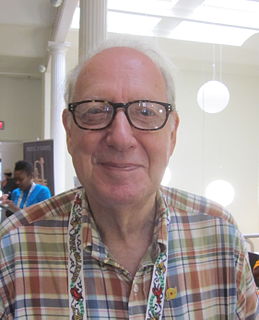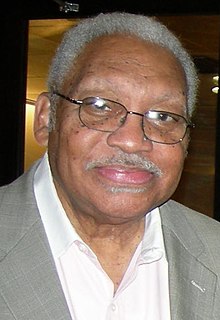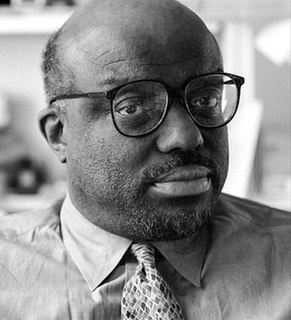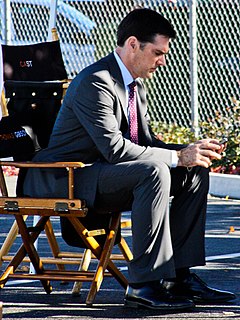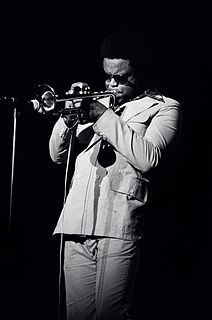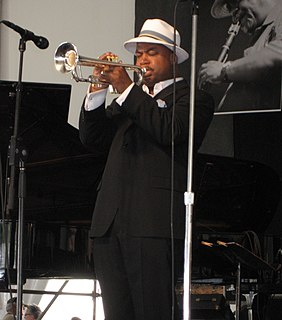A Quote by Dan Morgenstern
Armstrong was the key creator of the mature working language of jazz. Three decades after his death and more than three-quarters of a century since his influence first began to spread, not a single musician who has mastered that language fails to make daily use, knowingly or unknowingly, of something that was invented by Louis Armstrong.
Related Quotes
I think that anybody from the 20th century, up to now, has to be aware that if it wasn't for Louis Armstrong, we'd all be wearing powdered wigs. I think that Louis Armstrong loosened the world, helped people to be able to say "Yeah," and to walk with a little dip in their hip. Before Louis Armstrong, the world was definitely square, just like Christopher Columbus thought.
The extent of his influence across jazz, across American music, and around the world has such continuing stature that he is one of the few who can easily be mentioned with Stravinsky, Picasso and Joyce. His life was the embodiment of one who moves from rags to riches, from anonymity to internationally imitated innovator. Louis Daniel Armstrong supplied revolutionary language that took on such pervasiveness that it became commonplace, like the light bulb, the airplane, the telephone.
Neil Armstrong was no Christopher Columbus. In most respects, he was better. Unlike the famous fifteenth century seafarer, Armstrong knew where he landed. He also spent his time in public service, not in jail, and his passing was marked by world-wide encomiums. He ended his days as a celebrated explorer rather than a royal inconvenience.
I had a checklist in my mind of the things that make a biography practical. Is the source material centralized? Is it easy to find? Are there new primary sources that no one has ever had access to? Are all the sources in English? If they're not, are they in a language that you speak? And I realized that not only is Armstrong the most important figure of Jazz in the 20th Century, but he's a perfect subject for a biography for all of these reasons. I had always loved his music and I had been fascinated in him as a personality. And that's really the key to writing a biography.
When my sister and I were kids, swimming down in Charleston, there was this pizza parlor that had this old Dixieland band play, and I just loved Louis Armstrong and the sound of his voice, and I got up there with the band and started singing Louis Armstrong songs when I was a kid. I have no idea why, but I did it and I loved it.
My school music teacher, Al Bennest, introduced me to jazz by playing Louis Armstrong's record of "West End Blues" for me. I found more jazz on the radio, and began looking for records. My paper route money, and later, money I earned working after school in a print shop and a butcher shop went toward buying jazz records. I taught myself the alto saxophone and the drums in order to play in my high school dance band.
I grew up in a home filled with music and had an early appreciation of jazz since my dad was a jazz musician. Beginning at around age three I started singing with his band and jazz music has continued to be one of my three passions along with acting and writing. I like to say jazz music is my musical equivalent of comfort food. It's always where I go back to when I want to feel grounded.
Man, you'd be surprised how much I'm learning - not only about myself, but about the musicians who came before me. You don't realize at first when you listen to Armstrong's records how great this man was and how hard that Hot Five music was to play. After the experience of reading and playing those parts, I have an even greater respect for Louis Armstrong than before
